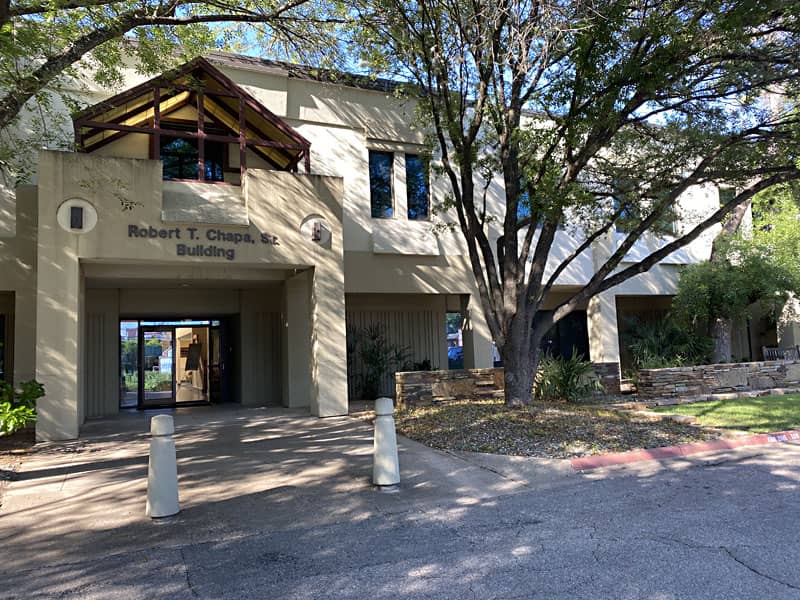Largest Mental Health Care Provider in Austin Plans Layoffs
Integral Care could cut up to 5% of positions
By Austin Sanders, 2:00PM, Thu. Aug. 17, 2023
Integral Care, the largest provider of mental health services in Travis County, is planning to lay off up to 5% of its staff.
The layoffs follow an unexpected revenue shortfall that will result in an $8-9 million budget deficit for the agency in fiscal year 2023-2024, according to an internal presentation shared with staff and obtained by the Chronicle.
The agency, which serves as the local mental health authority (LMHA) for Austin-Travis County, employs about 1,000 people in the area, so up to 50 administrative and patient-facing positions could be cut. Last year, Integral reported serving more than 27,000 Travis County residents. Other cost-cutting measures proposed by management include no cost-of-living adjustment in the FY24 budget. Integral Care, like other LMHAs, is funded through a mix of federal, state, and local dollars. It is one of the few government agencies that has no taxing authority, so it cannot generate revenue through taxes.
United Workers of Integral Care, the employee union formed last year to represent the agency’s front-line workforce, is warning that the cost-cutting measures will have an adverse effect on the agency’s already overworked staff and, by extension, patients. UWIC co-presidents Carly Melancon and Tovah Moriarty wrote that the agency’s front-line employees have “worked tirelessly” through a combined “mental health, housing, and pandemic crisis” to deliver critical care to patients.
In recent years, the agency has suffered from high levels of turnover due to “burnout and secondary trauma,” according to Melancon and Moriarty. “The solution is not to lay off the staff who are still here doing the work for our community,” the co-presidents said. “We need our local elected leaders at City of Austin and Travis County to press (IC Chief Executive Officer) David Evans for a more sustainable budget that protects workers and ensures that we are able to deliver the services our community needs.”
Integral Care’s board of trustees is expected to approve the budget cuts when they adopt the agency’s FY24 budget, Aug. 31. In a recording of a virtual meeting obtained by the Chronicle, leadership offered, Aug. 14, an explanation for the layoffs. Because Texas has opted out of receiving expanded Medicaid funding made available to states through the Affordable Care Act, the state relies heavily on funds provided by the 1115 Medicaid waiver – a federal funding agreement to support safety net providers and their low-income patients. Integral Care has also relied on 1115 funds, specifically for programs including the agency’s Expanded Mobile Crisis Outreach Team, which responds to mental health 911 calls.
But in 2021, the Biden administration refused to grant Texas an extension of the 1115 waiver for another decade, saying the state hadn’t gotten sufficient public input on the funding (and possibly to encourage Texas to expand Medicaid, since 1115 waiver money is the only funding stream keeping some hospitals afloat). The Biden administration dropped that fight in April 2022, so that funding is secured for 10 years. But the yearlong threat of losing 1115 funding led Texas to move away from that federal funding source and toward a model that would rely on more state-level funding for mental health authorities – primarily through two programs, the Direct Payment Program and Charity Care Program. Both are funded differently than the waiver, Integral Care Chief Operating Officer Dawn Handley explained at the meeting. “The waiver helped us launch a variety of programs in ways we couldn’t under state funding,” Handley said. The state funds come from a pot shared by all LMHAs throughout Texas and it “comes with different requirements and less flexibility than experienced with waiver funds.”
Integral Care learned in the last week of June – late in their budget process – that they did not provide as many services as the DPP anticipated. As a result, the agency had to return to the state $1.6 million of the $6.4 million in funds they received from the program. Agency leadership was also anticipating more robust mental health care funding from the state during the 88th legislative session, but that funding did not materialize. They expected $4 million from the state’s biennial budget; instead, they only received $800,000.
In response to questions from the Chronicle, an agency spokesperson pointed to $10 million in wage increases Integral Care’s board approved in the FY23 budget as one of the “internal factors” that led to the budget deficit. Following advocacy from UWIC, trustees raised IC’s minimum wage from $15 to $20 per hour and provided a 5% wage increase to other personnel. Other factors the spokesperson pointed to include the increased cost of health insurance premiums among employees, which are 100% covered by the agency’s base health insurance plan, and the fact that Integral Care provides care to patients regardless of their ability to pay for services.
Going forward, agency leadership noted steps they can take to increase Integral Care’s state funding; such as more consistently documenting patient insurance to ensure the agency is reimbursed for DPP-eligible services, ensuring they meet minimum service duration requirements in each program, and maximizing the use of reimbursable services. In the recording, management said they would work with employees affected by the layoffs to try and place them into new roles, when possible.
The Aug. 14 virtual meeting concluded with remarks from Evans, the agency’s CEO. “I’m confident we’re going to continue to persevere as we push into the future,” Evans, who earned a salary of about $314,000 last year, told his employees. “Our overall position within this community, the support we’re receiving through others remains strong.”
Got something to say on the subject? Send a letter to the editor.
A note to readers: Bold and uncensored, The Austin Chronicle has been Austin’s independent news source for over 40 years, expressing the community’s political and environmental concerns and supporting its active cultural scene. Now more than ever, we need your support to continue supplying Austin with independent, free press. If real news is important to you, please consider making a donation of $5, $10 or whatever you can afford, to help keep our journalism on stands.
June 28, 2024
June 26, 2024
Integral Care, Mental Health, 1115 Waiver, Medicaid









